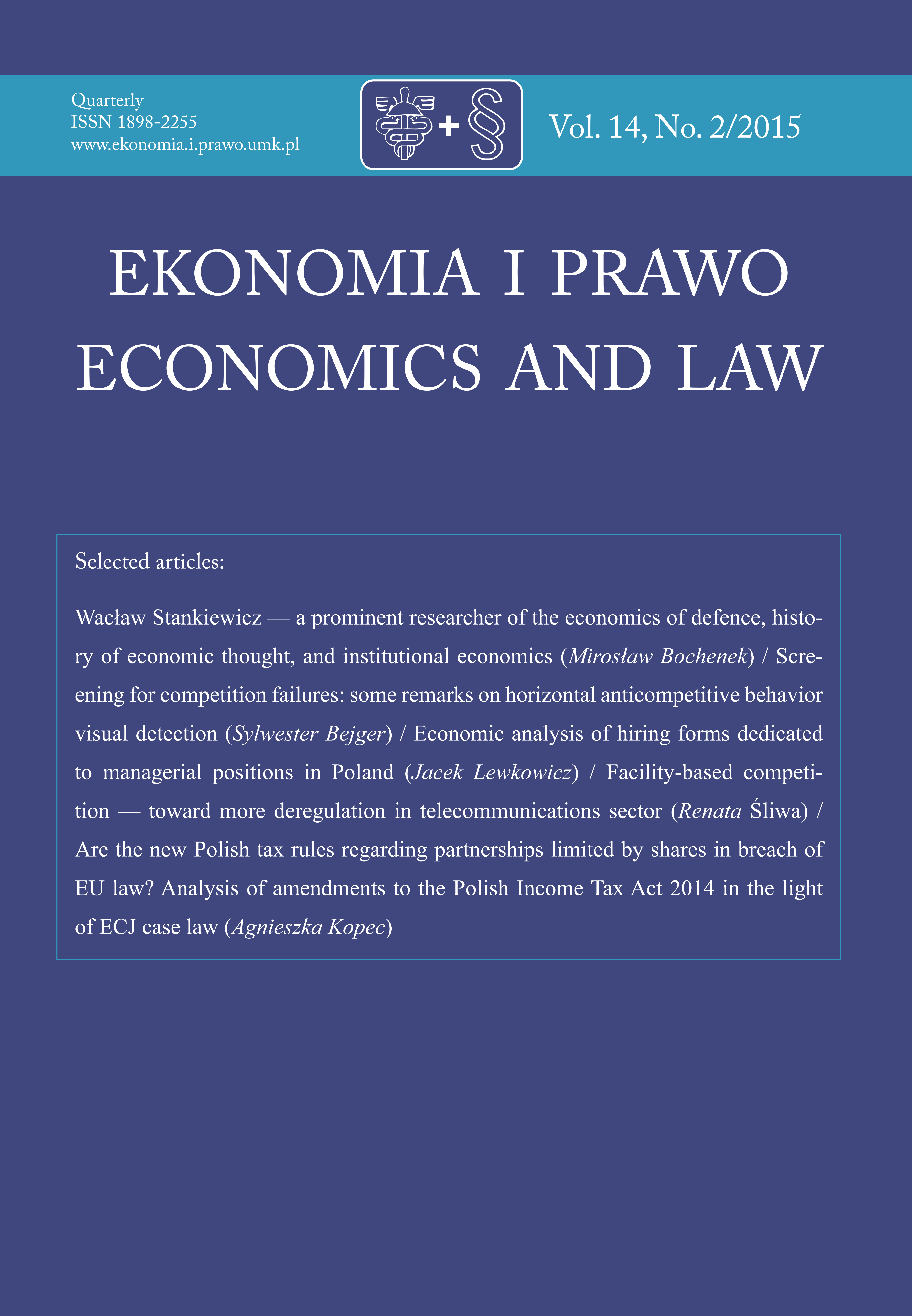REPUTATION AND REGULATIONS AS MARKET AND NON-MARKET MECHANISMS TO REDUCE BIFURCATED RISK
REPUTATION AND REGULATIONS AS MARKET AND NON-MARKET MECHANISMS TO REDUCE BIFURCATED RISK
Author(s): Agata Adamska, Tomasz J. DąbrowskiSubject(s): Economy, National Economy
Published by: Wydawnictwo Naukowe Uniwersytetu Mikołaja Kopernika
Keywords: uncertainty; opportunistic behaviour; trust; agency problem; institutional order
Summary/Abstract: This paper presents a new concept of bifurcated risk and market and non-market mechanisms reducing the risk. Bifurcated risk occurs in different situations, and it is characterized by a disruption of the relationship between decision-making and the resulting consequences. The bifurcated risk is followed by a number of very negative consequences in the form of disturbances of institutional order and a decrease in the level of generalized trust which leads to an increase in transaction costs. Therefore, it is important to reduce this risk, by means of using various market and non-market mechanisms. This article presents two such mechanisms — reputation and regulations. Reputation reduces the bifurcated risk, because on one hand, it creates stimuli which discourage decision-makers from taking this risk, on the other hand helps to reduce information asymmetry, allowing entities susceptible to the effects of risks to avoid entering into relationships with entities which are the source of this risk. Regulations in turn play a greater role not in preventing the emergence of the bifurcated risk, but in mitigating the negative consequences associated with the risk. Reputation and regulations are complementary and as mechanisms to reduce the bifurcated risk can occur together.
Journal: Ekonomia i Prawo. Economics and Law
- Issue Year: 14/2015
- Issue No: 2
- Page Range: 155-168
- Page Count: 14
- Language: English

